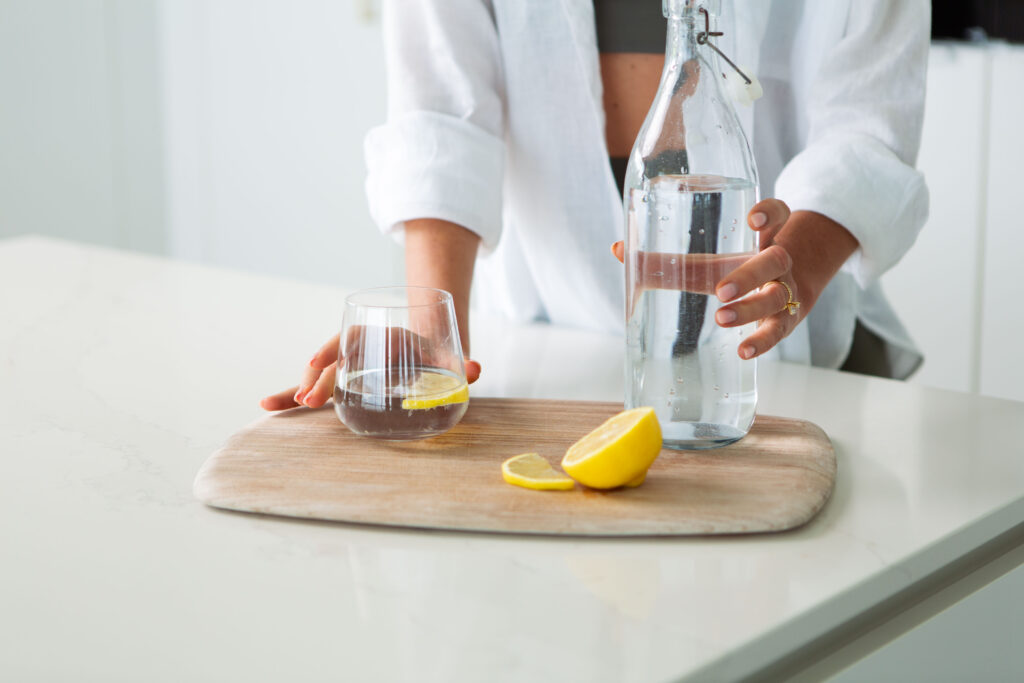How Much Water Should You Really Drink?
05 Oct 2023
When we look for advice on what we can do in order to live a healthy lifestyle, drinking more water is guaranteed to be one of the recommendations. But how much water should we actually drink each day? 8 glasses of water is an amount that has been thrown around in the media for years, but is it really accurate?
It’s All About Balance
So firstly, let’s put into context how important water is for our bodies.
Water makes up at least two-thirds of our total body weight. So, it’s no surprise that water is one of the most essential “nutrients” we need each day to stay healthy. Without enough water, we find ourselves battling dehydration with side effects such as:
- Fatigue and brain fog
- Headaches or dizziness
- Irritability
- Sluggish digestion
- Increased pain or muscle tension
But more is not always better. Drinking too much water can also cause issues. When you overdrink, you throw off the delicate electrolyte balance and increase pressure on the body. This can cause issues such as:
- Bloating
- Nausea or vomiting
- Increased stress on the kidneys
- Drowsiness
- Changes in blood pressure
- Weak, cramping muscles
The key to maintaining healthy hydration lies in finding the right balance, for you.
How Much Water Should You Drink?
The U.S. National Academies of Sciences, Engineering, and Medicine recommends that the average woman should drink 2.7 litres a day, and the average man should drink 3.7 litres a day.
This isn’t a one size fits all. There are some other considerations such as salt intake, other drinks that we consume, exercise, our environment and our overall health condition. So let’s look at these in a bit more detail.
- The foods we eat can account for some of our water intake, typically up to 20%, especially if our diet contains fruit and vegetables.
- Salty foods cause the body to pull water out of the cells and into the blood to maintain balance. This can put extra pressure on your kidneys. Avoid overindulging on salty snacks when possible. And when you do indulge, drink extra water to help clear out excess sodium faster and restore your cells’ water balance.
- If you regularly drink herbal (non-caffeinated tea) or fresh juice, that counts as a healthy water intake. But, other beverages can act as diuretics and deplete your fluids. The more caffeine and alcohol you intake, the more water you’ll excrete as urine. Keep these to a minimum and replace the loss with an additional glass of water for every caffeinated or alcoholic beverage you drink.
- Exercise is a great way to flush your system with healthy fluids and boost your circulation. But be mindful that the more you sweat, the more water you need to drink to replenish your fluids.
- If you are lucky enough to live in a warm climate, your body will naturally lose more fluids and you’ll need to hydrate more. In Ireland, we need to be particularly mindful of this when on holidays or during our rare, but wonderful warm spells!
- Changes in health can mean we need more or less water to cope and heal. When we are sick, we need extra fluids to support our immune system and replenish any lost fluids from vomiting or diarrhoea. Sometimes, certain health conditions or medications have a diuretic effect that we need to counteract by drinking more water. Women who are pregnant or breastfeeding also need to drink extra water to best support their changing bodies and growing babies.
Tips To Being Consistent With Your Water Intake
Invest in a reusable water bottle that you really like and bring it everywhere with you. If you have your bottle in front of you, you’re much more likely to sip on it throughout the day. It’s also a good way of tracking how much you are drinking. We love the Frank Green bottles and the Stanley Flowstate Tumblers.
Ensure you’re drinking water the way you like it. So whether that’s with ice or with some added fruit, you’re more likely to drink it if it’s served just the way you like!
Health is all about balance – and that includes how much water you take in. Use this information and these tips to reach your daily hydration goals and don’t forget to take on a little extra water after each TPP class!


